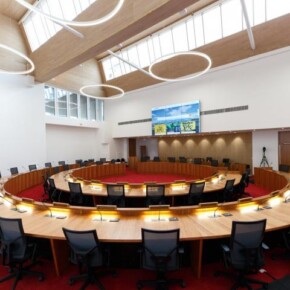COMMENT: Christmas can be a flashpoint for domestic violence
Dublin People 15 Dec 2016
AT this time of year, Christmas advertising campaigns are designed to pack an emotional punch. From dogs on trampolines to tearful family reunions, there isn’t a trick in the book that hasn’t been used to pull on our heartstrings.
This year, however, it’s a national awareness campaign to highlight the issue of domestic abuse that has hit home the most.
The ‘What Would You Do?’ campaign is an initiative of Cosc, the National Office for the Prevention of Domestic, Sexual and Gender-based Violence.
It is one the key actions contained in the second National Strategy on Domestic, Sexual and Gender-based Violence 2016-2021. It’s intended that the campaign will run for six years.
Its overall aim is to increase the awareness of domestic and sexual violence; to bring about a change in long established societal behaviours and attitudes; and to activate bystanders with the aim of decreasing and preventing this violence.
The campaign recognises that women and men are victims of such crimes.
The statistics are pretty shocking. Over 300,000 people in Ireland have been severely abused by a partner at some point in their lives, according to Cosc.
The key message of the campaign is that if you have witnessed or experienced domestic violence or abusive behaviour by a partner, or you are concerned you have abused someone, you can prevent it from happening again.
The reality is that domestic violence goes beyond actual physical violence. It can also involve the destruction of property; isolation from friends, family and other potential sources of support; threats to others, including children; stalking; and control over access to money, personal items, food, transportation and the telephone.
Domestic violence is more common than most people realise and is often unreported and misunderstood. Figures show that 29 per cent of women and 26 per cent of men suffer domestic abuse when severe and minor incidents are combined.
It occurs in all social classes, across all ethnic groups and among people of every educational background.
It can be described as the use of physical or emotional force or the threat of physical force, including sexual violence in close adult relationships.
Domestic, sexual and gender-based violence have recently emerged as an increasingly important topic in public debate, both in Ireland and abroad. This campaign wants to send out the message that men and women have exactly the same rights to be safe in their own homes and all statutory services – such as the gardaí, the courts and social services – have a duty to provide services to all, whatever their gender.
Sadly, Christmas can all too often be a flashpoint for domestic violence, particularly if there are issues with alcohol abuse in a home. The reality for victims is far removed from the festive scenes depicted in the saccharine television commercials.
For further information on domestic violence and a full list of the supports available, visit www.whatwouldyoudo.ie.











